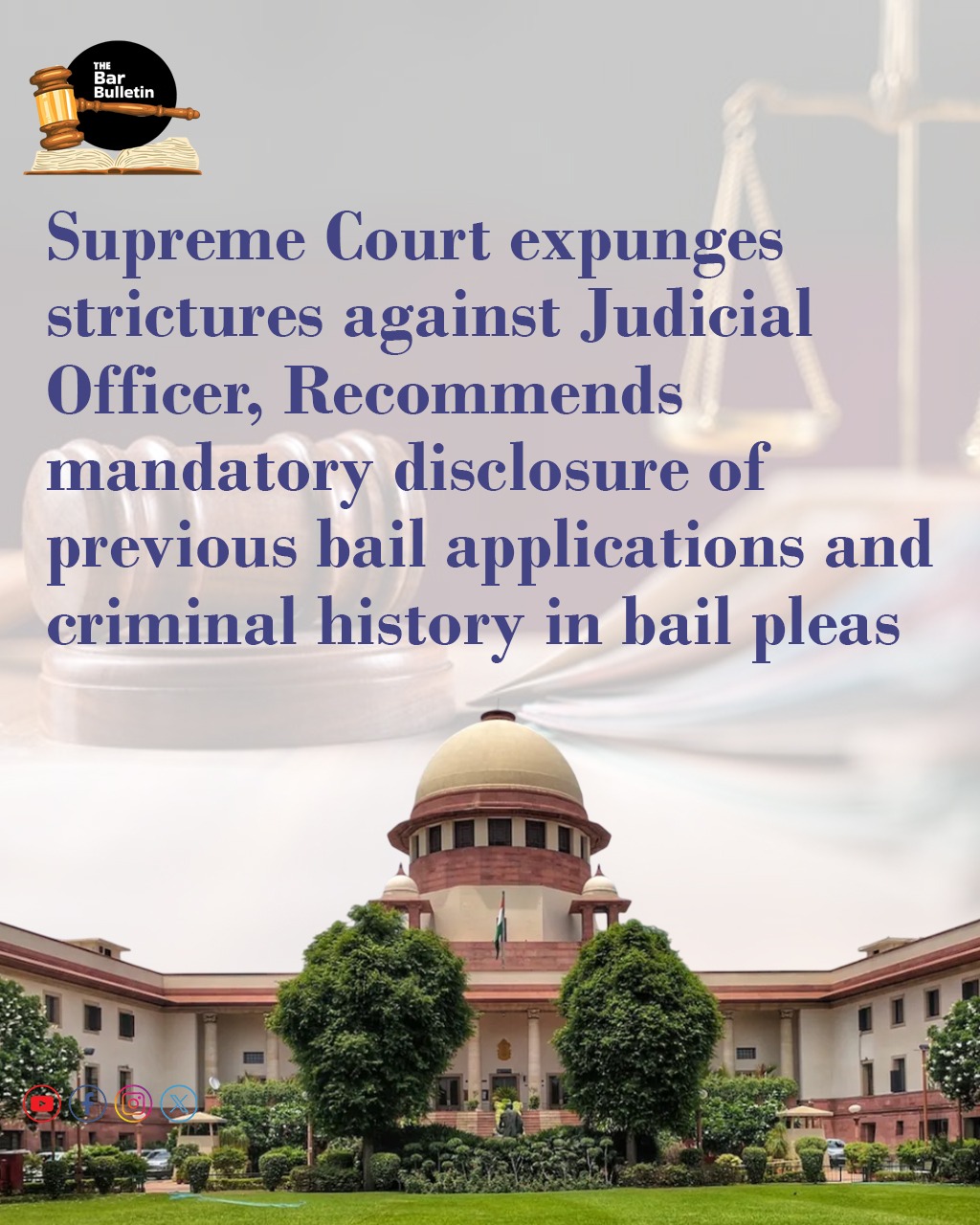The Supreme Court allowed an appeal by a Judicial Officer of the District Judge Cadre, against the High Court’s order dated 3 May 2024, which criticised him for allegedly granting bail to a key accused without considering criminal antecedents.
The appeal arose from a case where bail was granted to the accused charged under multiple sections of the IPC, including Section 307. The High Court termed the grant of bail “grossly inappropriate” and issued directions for administrative action against the officer, including forwarding the order to the Chief Justice of Rajasthan High Court. The appellant argued that the High Court had acted in breach of natural justice by condemning him without giving him any opportunity to be heard.
The Supreme Court Bench comprising Justice Vikram Nath, Justice Sanjay Karol, and Justice Sandeep Mehta analysed leading judicial precedents in the matter. It referred to In Re: K, A Judicial Officer[1], which strictly cautions against unwarranted personal observations against subordinate judiciary without affording a hearing, and Sonu Agnihotri vs Chandra Shekhar[2], which reaffirmed the same principle. The Court noted the Rajasthan High Court had improperly relied on Jugal vs State of Rajasthan[3], which had been overturned in Ayub Khan vs State of Rajasthan[4], undermining the basis of the strictures.
The Supreme Court observed that criticism of judicial officers without affording them an opportunity to explain their conduct violates due process and adversely affects judicial independence. It stressed the need to avoid personal criticism in judicial orders, recommending concerns about judicial conduct be addressed through administrative channels.
Significantly, the Court recommended a broader institutional reform by suggesting that all High Courts adopt a rule similar to Rule 5 of Chapter 1-A(b) Volume-V of the Punjab & Haryana High Court Rules, mandating disclosure of prior bail applications and criminal records in every bail plea. Such a rule would ensure transparency and facilitate informed judicial decisions in bail matters across jurisdictions.
The Supreme Court allowed the appeal, expunged the adverse remarks, and modified the High Court’s order. It also instructed that a copy of this order be communicated to the Registrar Generals of all the High Courts to consider incorporation of a similar Rule.
[1] (2001) 3 SCC 54
[2] 2024 SCC OnLine SC 3382
[3] 2020 SCC OnLine Raj 2691
[4] 2024 SCC OnLine SC 3763
![]()



